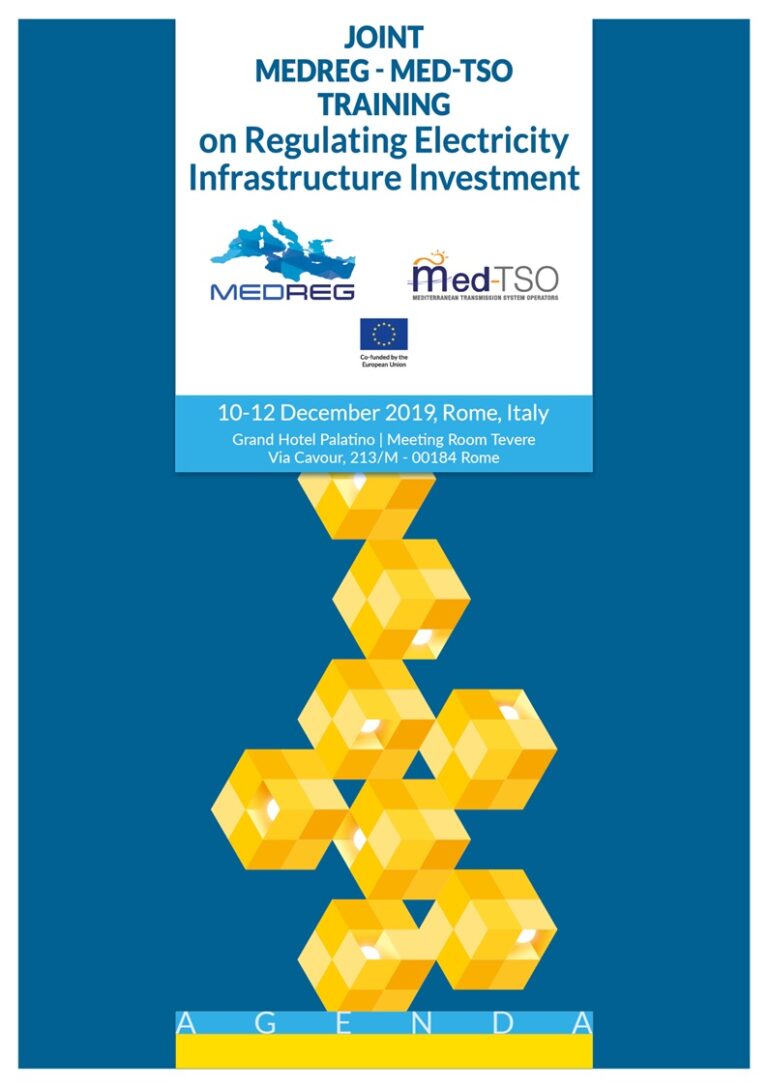
Investment decisions in electricity systems are of crucial importance, as they have to ensure in the long run the correspondence between consumers’ needs and the supply capacity of generation and infrastructures. Electricity systems articulate different complementary activities and investment policies have to build upon a proper assessment of national situations and priority need identification. In Southern and Eastern Mediterranean Countries (SEMCs), investment is often made challenging due to limited financial resources and constrained industrial capacities. The level of economic development is indeed a key parameter as poverty exacerbates the need for focusing on priority areas. On top of this, the rapid increase of populations’ needs makes system planning even more challenging.
In terms of investment planning and interconnection development, while in the EU the market design and the level of development of electricity markets makes it possible to run market simulation models evaluating projects according to wholesale prices, in the wider Mediterranean region such an approach is much more difficult to be implemented. Assessing the social value of interconnection projects is hindered by the lack of harmonization of system operation and conditions are less favorable than in Europe to efficient cross-border integration. The topology of existing systems in SEMCs is very different and networks are less meshed because of the non-homogenous concentration of the population. In addition, the lack of reserve margins on the generation side and the sustained increase of consumption in a context of non-competitive organization of markets make even harder the development of a harmonized approach to network development.
To stimulate investment, it is necessary to clearly assess what the priorities are at national and regional levels. Having a view to energy systems as a whole is important to ensure the coherence of choices. In this respect, efforts have to be put on long term planning, which includes the assessment of needs and possible options to fulfil them, articulating the development of energy supplies, power generation, transmission and distribution networks, interconnections. Investment processes are long, therefore promoting stability and transparency in terms of institutional organization and regulation is crucial, both for national and foreign investors. When focusing on infrastructures, these are meant to be developed by the national system operators, who play a role of coordination for allowing a good long-term planning. A correct and appropriate planning is indeed essential for meeting the forecasted demand and to be a measure of the system maturity.
This training considers and explains the main questions and possible answers that characterize the debate on infrastructure and investments, focusing in particular on planning, feasibility and incentives. This course will provide a comprehensive view on the planning design options (and their relevant costs) characterizing a market-based power system and illustrate pros and cons for each of them. It will also propose a review of the incentive models currently in use in Europe and detail the steps to undertake for the integration of wholesale and balancing markets. The course combines theory with practical case studies presented directly by decision-makers involved, including energy regulators, academics and professionals from energy companies.
DOWNLOAD THE WORKSHOP MATERIALS
MEDREG_–_MED-TSO_JOINT_TRAINING_ON_TRAINING_ON_REGULATING_ELECTRICITY_INFRASTRUCTURE_INVESTMENT.zip
